#and/or a victimhood complex etc
Explore tagged Tumblr posts
Text
At the core of Armand is a little boy who is screaming and beating his fists at how unfair it all is. His ugly tendancy for painting himself as a victim even in times when he's clearly the abuser is directly related to him never being seen as a victim when he unquestionably was one (ie: in the brothel, the Palazzo, the catacombs etc.) There's a seed of resentment buried in his heart that has been growing for 500 years over this. What about my pain cries the boy as he burns ants under a magnifying glass. After all, isn't he just everything he was made to be? Isn't he owed the right to cruelty, after all that was done to him? What an insult it is to him that we would worry about the ants and see him as a villain.
#the cycles cycle for a reason etc etc#idk. very armpandpilled pov post. i just get his victim complex. it makes sense to me.#just one facet of his relationship to victimhood tho.#thinking abt proximity to perfect victimhood#and living through trauma to become a monster#post courtesy of too much Nyquil#the vampire armand#armand#intwerview with the vampire#iwtv#pls don't be weird abt this post it isn't apologia ok i know he does horrible things that's the whole point
791 notes
·
View notes
Text
catradora and the perfect victim complex
(i literally fucking think about this all the time so this just gonna be a rant lol)
i really, truly think that people in general don’t put the effort into understanding characters who are imperfect victims. for them, it destroys the appeal of victimhood. victimhood (especially when the victims in question are girls, women, femme presenting people, etc.) needs to be beautiful and tragic. think characters like ophelia, snow white, odette, juliet, the lisbon sisters. otherwise, their victimhood is no longer attractive.
catra is an imperfect victim. shadow weaver’s abuse did not make her soft, weak, timid, or fragile. it made her bitter, angry, and resentful.
i once saw a catra anti saying some bullshit about how they might’ve liked catra more if the writers had spent more screen time showing shadow weaver abusing her, specifically her when she was a kid.
this person wanted to see catra’s pain as beautiful. they wanted to see her ONLY as a child to be pitied, the little kid who cowered in fear instead of fighting back, and not have to acknowledge catra’s more complicated character traits.
i also think this is why these same people often talk like they love adora, like “adora deserves better than catra” and all that shit. adora (to them) is easier to see as a perfect victim. shadow weaver’s abuse made her obedient and self-sacrificing. it made her put others before herself, even to the point of fucking death. adora is selfless and brave. she’s so determined to be a perfect hero, to protect people, to care for people, to love people. these traits are easier to romanticize. it makes her seem beautiful.
if you ask me, this is a really fucked up way of viewing adora. i don’t love adora bc she’s a “perfect victim”, i love adora bc she, like catra, is also flawed. adora’s determination to be perfect leads her to abandoning catra. her inability to empathize with catra leads her to behaving the way she did in taking control. adora isn’t fucking perfect.
(for context i do also think that catra was in the wrong in that episode too, but i feel like we don’t talk enough about how badly adora was handling the situation. like seriously girl catra is here basically telling her “i don’t trust you bc i don’t believe that you could ever love me bc i’m inherently fucked up and unlovable” and adora’s immediate reaction is to blow up at her. it makes sense given what adora has just done for her, but it’s another example of adora being incapable of empathizing with catra. also calling her a stubborn brat? yeah uh that wasn’t funny adora, especially not with the ways that shadow weaver talked about catra.)
but i love that adora is flawed, and i love that catra is flawed. they’re not archetypes. no real person experiences abuse like they did and comes out perfect. catra’s intense fear of abandonment and resentment issues are a very fucking real response to the way she was traumatized. regardless of how ugly it is.
at the end of the day, i think that people can’t wrap their brains around this concept and refuse to empathize with imperfect victims bc they don’t want to admit that they, too, are imperfect victims. the perfect victim isn’t real. it’s a fucking myth.
in real life, people are messy and complicated, like catra and adora. it’s why i love them :)
ugh i could literally go on about this FOREVER i swear.
#catradora#spop#she-ra#catra#adora#catradora brainrot#analysis#perfect victims#she ra and the princesses of power#the nuance in this show is so so fucking good#i love these girls so much#they are everything to me
119 notes
·
View notes
Text
"she's patriarchy-pilled" and why it doesn't apply to fictious pseudo-medieval women
a pretty common meta commentary leveled at certain female characters in ASOIAF is that you can divide the women of the setting into two groups.
the first group is full of strong feminist women who resist the patriarchy in all corners, and who refuse to submit to victimhood. the second group is full of placid, smug sheep, who enjoy being weak and condescended to by men.
reasons why this is bullshit:
comparisons between modern day 'trad wives' or 'red pilled women' who advocate for rejecting feminism and returning to lives of happy homemaking and female submission and fictional characters living in a pseudo medieval world just... don't work well.
Westeros has never had a feminist movement. there is no sense of 'getting back to tradition' because they are still living in a feudal patriarchy. while internalized misogyny can still be displayed in the books, and women certainly judge other women, these characters aren't actually 'rejecting their own freedom', because they quite literally have no choice in the matter.
for example, while a woman in 21st century America might willingly quit her job or drop out of school for a relationship with a man, a female character like Catelyn or Alicent or Cersei... isn't actually sacrificing hopes of a career or an education. they are being shunted down a path with little to no alternatives.
sometimes fans go "well, they could have run away! they could have joined the Faith?" how? with what money and resources? who is going to protect them on the road? how are they going to subvert the will of their fathers/brothers/etc?
don't get me wrong. there are absolutely unironic examples of internalized misogyny in ASOIAF. Cersei, for example, spends much of her time sneering at and degrading other women for being victims or weak-willed. HOWEVER, what many fans don't seem to grasp, is that being sexist towards other women doesn't magically make Cersei 'win' at the patriarchy. she herself is still abused, demeaned, and used as a political pawn, well into her tenure as Queen Regent.
in the endless battle of Sansa versus Arya stans, for example, Sansa stans will often claim that Arya is 'not a victim' and 'deserves less sympathy than Sansa', because Arya for a time is treated as a young boy and has training with a sword. yet this ignores the fact that Arya is still constantly threatened with or exposed to sexual violence, even while masquerading as a boy, and while she can defend herself in some instances, is far from this super-powered action chick on a 'fun road trip in the Riverlands'.
conversely, Arya stans will insinuate that Sansa 'deserves less sympathy than Arya' because 'being at court is what she always wanted' and 'the patriarchy favors her due to her self-serving, submissive ways'. yet this ignores the fact that while Sansa has more material privileges than Arya, being afforded regular meals, a soft place to sleep, and the veneer of civility, she is still regularly viciously abused by Joffrey and his Kingsguard, and ostracized and isolated from the rest of the court. Sansa's not winning any competition here.
to move on to Catelyn, many of Catelyn's proud 'antis' will claim that Catelyn is a woman who willingly and knowingly profits off the patriarchy while condemning women who do not fit that mold. yet while Catelyn and Arya's relationship is complex, we also see Catelyn treat Brienne and the Mormont women, all female warriors, with warmth and kindness, and there is an underlying current of resentment and anger in her chapters towards the men in her life, even though she is in many ways the 'ideal Westeros wife'.
finally, to dabble briefly in HOTD, Rhaenyra and Alicent's different reactions to the prospect of marriage and motherhood are often compared to triumph Rhaenyra's strong will and sense of rebellion. while Rhaenyra's determination to choose her own spouse and her disregard for the ridiculous notion of 'virginity' should be admired, she is also actively groomed by her uncle, a man thrice her age, and she ultimately does agree to an arranged marriage with Laenor.
meanwhile, Alicent is often derided by fans for 'allowing herself to be used as a pawn', yet this ignores the fact that Alicent is a 14/15 year old girl with no incomes or property of her own, who does not even have the threat of a dragon to demand respect. what was Alicent meant to do? kick and scream as she was dragged down the aisle? defy her father and the King, and be, best case scenario, permanently ostracized from court and her family for it? this sort of blatant victim-blaming dominates in the tumblr HOTD fandom.
in conclusion: to claim that women play no role in promulgating patriarchal and misogynistic views is silly.
women do play an active role in shaming and abusing other women, and this is often handed down from mothers to daughters. it allows patriarchs the veneer of genteel nature, in that the 'dirty work' of berating young girls for not conforming is passed off on mothers, sisters, and aunts.
however, in fandom discussions, the the woobification of male characters is so strong that we spend most of our time blaming women alone for patriarchal restrictions and values, as if it were something girls developed in their free time, purely for their own amusement.
to imply that a character in a fictional feudal patriarchy has the same range of choices and autonomy as modern day women do is absurd. the trad-wife movement is defined by its knowing, pseudo-intellectual rejection of second and third wave feminism. the entire point is to turn away from abortion, from birth control, from reproductive and LGBT rights, to leave behind women's suffrage, sex positivity, and criticism of gender roles.
but what do Westerosi women have to 'reject', exactly? they're not playing with the same full deck.
746 notes
·
View notes
Text
Redemption and THT
I’ve been re-reading portions of the original The Handmaid’s Tale novel, and I was quite struck by this passage in chapter 24. Offred is remembering a documentary her mother had her watch as a child about a woman “who had been the mistress of a man who had supervised one of the camps where they put the Jews.”

This portion of the book is so striking and profound. It explores the themes of human complexity for good and evil and the banality of evil. This is an important message.
If this is what the season 6 writers/showrunners were going for, I recognize the attempt. The execution and follow through, however, were half-baked and illogical. Margaret Atwood accomplished in less than 2 pages what the show’s writers took a whole season to try to do.
Again, this message is an important one, but it absolutely does NOT work for Nick Blaine. And using his character to push this message, in fact sends a very different one: that people manipulated by and caught up in systems beyond their power, who detest the power they’re given, who find ways to safely and effectively enact change, etc., these people should be viewed as irredeemable lost causes who will always ultimately choose evil. How does that help us create a better and united society? So why does this narrative seem so backwards on Nick’s character?
To emphasize my point, I want to share another quote about the utility of suffering:
“What do we do with suffering? As far as I can see, we have two choices—we either transform our suffering into something else, or we hold on to it, and eventually pass it on.
In order to transform our pain, we must acknowledge that all people suffer. By understanding that suffering is the universal unifying force, we can see people more compassionately, and this goes some way toward helping us forgive the world and ourselves. By acting compassionately we reduce the world’s net suffering, and defiantly rehabilitate the world. It is an alchemical act that transforms pain into beauty. This is good. This is beautiful.
To not transform our suffering and instead transmit our pain to others, in the form of abuse, torture, hatred, misanthropy, cynicism, blaming and victimhood, compounds the world’s suffering. Most sin is simply one person’s suffering passed on to another. This is not good. This is not beautiful.
The utility of suffering, then, is the opportunity it affords us to become better human beings. It is the engine of our redemption.”
(Link to original quote)
In season 1, Nick and June were shown as clear contrasts to Fred and Serena. In their own ways, each of these characters have suffered. (Remember, all humans suffer, although the degree to which it occurs obviously varies). Nick and June represented the utility of suffering. Both characters in season 1 transformed their pain into love—something that ignited them into action and bravery for multiple seasons. Fred and Serena took the other path. They perpetuated and passed their pain on to the people under their power.
This is why Nick’s redemption has always been more acceptable or complex than for characters such as Serena, Lydia, Wharton, and Lawrence. Nick’s early character arc already had him transformed by love. The regression in the end was weak and sloppy. Serena, while she’s had her moments, has adamently chosen Gilead ideology over and over again. Even when she got out and even when she had clear choices.
Redemption doesn’t come from one useful (but still selfish) act at the end of a long chain of horrors and abuse. It doesn’t come only from guilt and self-loathing. Redemption begins through transformation. In the end, I didn’t see transformation from Serena. I saw regret that her choices didn’t work out the way she wanted, but throughout the seasons, she has still perpetuated and supported Gilead ideology. Aunt Lydia’s transformation was also extremely rushed and didn’t feel genuine enough (though they’re probably saving that for the Testaments). Even Lawrence, who had a better character arc, still only chose to work with Mayday for the selfish reason of wanting to stay alive when the other Commanders were going to kill him.
Nick’s potential for redemption was always there. He had transformed into someone willing to sacrifice whatever it took for the people he loved. This is why it frustrates me when people say he only helped June because he loved her. Like that’s a bad thing? To risk your life over and over again out of love? That is good. That is beautiful. That is evidence of a personal transformation.
20 notes
·
View notes
Note
(These observations are only based on my reading of the two available scripts, since I’ve been sick recently and don’t want to be one of Orlok’s plague rats, so I’m avoiding movie theaters for the time being.)
I 100% see where the CSA/Abuse interpretation is coming from, but I feel that I’ve seen many comments from that perspective flat out deny any part of the film deals with female repression, which, based on the scripts, just isn’t true.
Mainly I’m thinking of Friedrich, the loving father of two daughters (who nonetheless repeatedly manifests for his unborn child to finally be a son, named after him), two daughters (little girls Ellen is seen playing with repeatedly—in the 2016 script she plays with them at the beach before talking to Anna) who repeatedly mention a ‘monster’ that their doting parents laugh off as childish play—a monster that is very real, to Ellen, who is initially not treated seriously either until the arrival of Von Franz. She also scandalizes Friedrich when she says she would confront Knock herself, and in general he seems bothered by her more “forward” behavior which is at odds with how ladies “should” behave.
There is also a moment from Anna in the shooting script (not sure if it’s in the film) that stuck out to me: after Ellen says “He says I am promised to him!” (something to that effect) Anna cuts in to insist “She means her husband!” No, she’s obviously talking about Orlok—so why would it have been important to write Anna saying that, if female sexuality and its suppression is not intended as a clear theme?
Also, something else that stuck out to me from the scripts is a clear written attraction to Orlok/Death/the “other side” etc. that I feel also gets explained away by that crowd as only being a product of his abuse of her, but I don’t think that’s quite correct either; I think it’s an important element of the film for her to have, at least once, felt genuine (not trauma based) attraction towards Orlok—alongside her deep love and attraction for her husband, Thomas.
These are great points, I completely agree that looking at Friedrich and Anna's behaviour is key to understanding Ellen's battle with her "gifts" and how acceptance is very conditional for her, even among her closest friends who want to help her.
I don't think that "I am promised to him" part did make it to the finished film, I'm very interested in the context surrounding that - was it when Ellen was explaining her dreams/trances to Von Franz?
I totally agree that Ellen's attraction to Orlok is real, and I don't think it's based on victimhood or a feeling that she can never escape the urge to subject herself to repeated trauma, even though Orlok represents her trauma, among many other complex feelings in her psyche. I think that sexual desire for Orlok represents a deep, primal desire to claim her own darkness and power and everything that freaks her friends out. The tagline of all the promotional material is "succumb to the darkness" and that's really the whole deal, lots of people just immediately assume that darkness is evil and pain and powerlessness.
#nosferatu#nosferatu 2024#eggers#robert eggers#count orlok#ellen hutter#friedrich harding#anna harding
35 notes
·
View notes
Note
In response to another post saying that curly is not a victim of any kind before the crash and mentioning that the game is specifically and only about work place misogyny and corporate systems and status quo blaaah blah and how its soooo very "clear to see". (I do not feel like specifically copying and pasting or very directly responding to it to avoid an argument)
It reminded me of how much we just refuse to interact with media on multiple wavelengths bc I truly think both things can be true. Curly can still be a victim with all those other things in place, that's the beauty and complexity about writing victimhood. Repeatedly there are clear examples of curly being verbally trashed in front of other members of the crew. And it's implied that jimmys done this before by the way no one steps up to interfere. This is their normal. While curly is the boss and in control on a technical level he is also human and is shown to have a tender spot/little resolve when it comes to jimmy and therefore fails as a captain in regards to anya bc not only are his feelings so easily swayed by him but it's also kinda clear that curly is at the end of his rope. He is lost, he is vulnerable, he is scared, and he doesn't take responsibility. And is a perfect target for someone like jimmy
Which I think all these themes can neatly tie into themes about corporate capitalism in amazing interesting ways. The misogyny, the status quo, the victimization, the abelism that curly does go thru via everyone else on the ship etc etc.
You guys are so stuck in this mindset that it can only be a single message/thing being portrayed. So stuck in a "maybe the curtains are blue just because theyre blue" anti-intellectual type of takes. When it can be both. Both is good lmao.
And both are perfectly fine interpretations of media, almost as if the game was meant to invoke deeper thoughts and meanings. Almost like since the dawn of time classics have been taken apart and analyzed in feminist, Marxist, queer etc settings and retellings to further deepen our understandings and update to modern complex standards.
Idk kinda got lost and ranty my bad.
.
#mw#mouthwashing#captain curly#curly mw#curly mouthwashing#anonymous#anonymous confessions#mouthwashingconfessionsblog
26 notes
·
View notes
Note
When I was an edgy teenager, I was listening to a lot of punk, specifically grunge and riot grrrl (make fun of me later). While I liked how the music sounded (LOL, I was fourteen/fifteen and had no taste), the messaging was patronizing, even if I was the target demographic, technically. (I'm a woman with a lot of "checked boxes"). All of these artists were saying outwardly that "women, POC, and The Homos™ are totally oppressed and if you hate them then we hate you." Grunge/riot grrrl/punk, despite their desire to "make a difference," really didn't, I don't think, unless they wanted to make social relationships worse. It was also a genre full of white people who were drowning in white guilt and actively admitted as such - I blame feminism.
In their quest to sound non-bigoted, this group of woke/leftist heterosexual white men and bisexual white women were calling all minority/"underrepresented" people helpless victims and advocating for violence and degeneracy (which worked). Yes, non-homosexuals with white saviour complexes, you totally know what you're talking about. (There were a couple homos in there too, unfortunately, and they loved that these people were giving into their victimhood mindset - I still think we're better than this shit).
Oh, and the best part? If any woman, POC, or homosexual called them out on their bullshit, they called them handmaidens, Uncle Toms, or under the heterosexual's boot, including actively harassing them. They called them names, said they were unwelcome, and pushed them out of spaces they claimed to have made for minorities. Really sounds sexist, racist, and homophobic if you ask me.
The bigoted leftists who claim to be "fighting bigotry" is not new. The rhetoric people think is new and from the 2010s has been around for a long time. These genres came out in the 1980s and 1990s, but it feels like even back then they were lying about how bad things were. I've seen multiple videos, including street interviews, home videos, etc, from the time and socially, it was much better than things are today. People of any sex, race, or sexuality were friends and outwardly said they cared for each other. "I love my white brothers," "I don't care if she's a woman as long as she loves rock 'n roll like I do," "Straight people in my community don't give a shit about lesbians/gays, even when we're in drag/cross-dressing." (paraphrased)
I've also noticed that the metal bands that were grouped in with grunge/riot grrrl/punk purely by association (rather than by genres overlapping) had not only the best music, but the band members actually had brains and didn't fall for the victimhood bullshit, even if they weren't explicitly conservative. I still listen to Layne Staley and Kat Bjelland because of this, and metal has so many conservative (or at least non-leftist) artists. That's where it's at.
The "grunge/punk icons" who are still alive today are now the type who are advocating to let trans-identified males into women's spaces and cheering on the female teachers (trans-identified or not) who are grooming kids in classrooms, among other popular leftist viewpoints. None of their viewpoints have changed in over thirty years. I'd say it was a fall from grace, but I'm not surprised at all. My generation (Gen Z) loves them because they were/are saying the same stuff my generation says today, and my generation acting all shocked that this rhetoric isn't new ("They were saying this stuff in 1992!!! Can you believe it??? Can't believe nothing has changed >:(.") is unbelievably cringe and shows how uninformed they are. Yeah, nothing has changed - leftists are still pushing the same dividing, hustler bullshit.
TLDR: Punk has always been shit and full of pussies, metal reigns supreme.
Worthwhile read.
Also a great endorsement for late 90s-mid 2000s pop punk. Most of that was about how much school sucked and how no one can find girlfriends. Very apolitical. XD
19 notes
·
View notes
Note
i think 'groomed' in the mystra context is a little bit like 'groomed to become a leader' in the sense of being prepared for a role. the elements of a huge power imbalance and manipulation make that negative where it could've been a positive thing. so instead, 'gale was groomed to become mystra's chosen' becomes 'gale is groomed to die due to his folly'. not getting into the pitfalls of being a chosen, but that's how i see it mostly. i suppose he was also a child at one point there and that then brings in the other definition. but mostly the former. i think.
That's another good and complicated facet in this complex issue! The difficult thing is everyone disagrees on the exact definition and parameters of Gale as a victim of grooming, if they believe that at all.
If you believe BG3 ignores 5e canon and Mystra revealed herself to him as a child, then it’s Child Grooming. If you believe she revealed herself when he was a late teen or young adult and was his mentor first, then it’s Teacher-Student Grooming. If you believe he was a consenting adult for most of their relationship, then you get a thorny kind of Adult Sexual/Emotional Grooming thing, which is extremely hard to pin down because we weren’t there to see all the details, and Gale isn’t being open about how much he consented at certain steps of his relationship with her. He may not even personally know how much he did or didn't consent himself, if he hasn't processed the trauma yet.
We can’t even agree on a timeline as a fandom. Of course we're not going to agree on a particular "brand" of grooming.
So it gets fuzzy, especially because no two “Gale was groomed” interpretations are the same, and that’s just among people who aren’t fighting over whether he was groomed.
The other difficult thing is that for most of the word's history (assuming "groom" was coined around the late 1700s), the use of “groom” as a verb meant either the care of an animal, plant, or location (grooming a horse, a cat grooming itself, grooming a lawn), or it meant personal hygiene (grooming your nails, your hair, etc), or it meant “to prepare a person for a role" without as many of the negative connotations (i.e., a politician grooming his successor, a situation where the person being groomed likely is consenting and finds no issue with the arrangement).
So, hate to say it, but there's a scenario where Gale could admit he was groomed--he was groomed to be Mystra's Chosen, a role he may have willingly walked into (kind of related to your point as well). That complicates the "Gale was groomed" narrative, doesn't it? Where does victimhood lie?
Apparently the term "grooming" didn’t have sexual connotations until around the 1980s.
Like not to be all Academic on Main but the Oxford English Dictionary, which tracks the (relative) earliest known uses for definitions, says the definition to prepare or coach a person for a career or role (paraphrased) has been around since the 1830s, while to gain the trust of and influence over a person for sexual abuse, exploitation, trafficking, drug-dealing, terrorism, etc (paraphrased) first came around 1984.

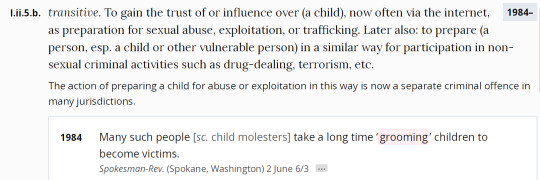
Granted the OED doesn't always find the exact first usage but the gap between 1830 and 1980 is pretty telling.
So this could not only be a language divide, but a generational divide. The concept of grooming as a sexually/emotionally predatory thing is pretty new by language standards. Most people playing BG3 would know the concept of grooming-as-predatory if they grew up in an English-speaking country, but at what point did they learn that definition? It will obviously vary.
These days it's a buzzword, thanks to all the shit coming out about Nickelodeon and child actors and celebrities and so on, so younger millennials and Gen-Z and beyond might be a bit more "trigger happy" about using the term than older millennials and others for whom the term is still relatively new and hard to grasp. Also, as completely different aside, I think people are quick to diagnose/label based on vibes, and that's part of the problem with all the fighting too, because how do you compare vibes?
Language is and always will be slippery. I guess in the end I just wish people would be more open about explaining why they go with a specific term, or why they disagree, without attacking people or completely dismissing whole narratives/arcs/experiences simply because it “doesn’t fit the definition.”
As a final related but side note, I think the biggest thing that bothers me about people erasing the Gale-as-grooming-victim is that it inevitably harms actual victims of grooming by insinuating that it's a scenario that could never possibly happen. But that has less to do with the weirdness of language and more about how people view trauma, abuse, and victimhood.
#asks#bg3#baldur's gate 3#gale#gale dekarios#mystra#bg3 discourse#bg3 meta#sorry to pull out the damn OED lmao#like a nerd#I could probably articulate this better but yeah#idk if I answered your question fully or addressed your points exactly sorry#brain is not braining today
34 notes
·
View notes
Note
Can I ask about Snape for "give me a character" ask?
Sure can!
How I feel about this character
Snape is a complex, flawed, emotionally compelling and morally grey character - which is why he's one of my favorites. I find him deeply fascinating and also very tragic.
All the people I ship romantically with this character
Shipping isn't that central to my interest in Snape's character. That said, I actually think snily has some fun potential and I'm always surprised there's not more written for it. I think Snape/Sirius as a dark or semidark (depending on the exact iteration) ship also has a lot of fascinating potential for something a bit messed up and very interesting. I also think Snape/Lupin has some very interesting potential as well though I've yet to find a fic that really explores the aspects of that ship that I think would be most compelling.
My non-romantic OTP for this character
I think Snape's relationship with Voldemort is really interesting. He and Tom Riddle have a lot in common - both from poor backgrounds, both with accents that they later worked to change, both very magically talented and creative, both half-blood, both with Muggle fathers who they disliked (and possibly whom they both killed), both highly intelligent etc.
I think to the extent that Voldemort likes anyone, he likes Snape. I mean he actually expresses some regret about killing him and apologizes to Snape. He also offers Lily a chance to live as a favor to Snape. And doesn't kill him on sight when he shows up late following the events of book 4 (though he is initially furious). And of course while Snape definitely fears Voldemort he doesn't grovel as much as some of his Death Eaters do, which I think Tom actually likes and respects.
On the other hand Tom has some reservations about Snape (partly probably just because he has trust issues) - even in book 7 I think part of the reason he kills Charity Burbage in the way that he does is to test Snape's loyalties by gauging his reaction. And of course Snape is actually not loyal to him at all and blames him for the death of the love of his life. I find the whole dynamic super interesting.
My unpopular opinion about this character
Regardless of Snape's later actions, what the Marauders did to him in SNW was utterly inexcusable. (This is only an unpopular opinion in some circles of course.) Snape's later misdeeds do not take away from his victimhood in that scene, nor does his victimhood take away from his flaws or subsequent bad choices and actions.
One thing I wish would happen / had happened with this character in canon.
I think Snape's arc is pretty well done. I would've liked to have seen more of his time as a double agent. I understand this would be difficult given the constraints of the series mostly being from Harry's POV, but it could have been accomplished with visions through Harry's connection to Voldemort. Especially in book 7 more visions that showed what the Death Eaters were up to would have been a lot more fun than camping and endless wedding planning imho.
27 notes
·
View notes
Note
Do you have any thoughts about Ava Reid’s Lady Macbeth? 👀👀👀
I keep putting it down because it annoys me. So far it basically has all the characteristic traits that made me dislike Reid's previous work as well. This particular idea of victimization as the ultimate mark of morality and value. That being a victim means you're Good and that that victimhood can be quantified, so if you've suffered more than someone else (always women! we hate female characters in Ava Reid books!) you're that much better than them
But yeah idk, I find Lady Macbeth particularly gloves off in terms of all the finer flaws in her other books, and the way that goes back to misogyny, because it's an adaptation. There's just so much that's telling about taking a mature female character (and historical figure) with complex and interesting morality and choices and agency, and to whittle her down to the most specialest waif of special waifs, who only exists to be angsty and victimized. She was born with glass bones and paper skin etc. Making her a teenage Targaryen princess with magic madness inducing beauty and unironically leaning into bullshit millennial "We're the daughters of the witches you couldn't burn" type stuff is certainly a fucking choice. It's just so extremely telling that she apparently cannot tell a story about a real goddamn adult woman, that she cannot hold that complexity in a protagonist. Meanwhile there's literally no women in this story? Outside of two handmaidens, who exist to serve her and be dependent on her. One of which probably(?) dies several chapters in and is never followed up on. The second one shows up super late in the game for no real reason? Anyway I find the way the book handles the historical element (basically just throwing it all out but also trying to claim some street cred) absolutely baffling. Also the arbitrary choice to make Lady Macbeth French, paired with the way the book talks about the Scottish as like idiot barbarians, and how Macbeth himself is one dimensionally evil, feels really, really weird. Reid clearly has an interest in portraying prejudice, so I'm giving her the benefit of the doubt here. I think it's probably just poor execution over genuine malice but it just ends up reading like hating Scotland is like narratively supported?
Very bizarre book that neither needs to exist or be in any way, shape, or form related to Macbeth!
#also the bluebeard angle. why.#dark stories of the north#step into my office#a mysterious stranger has appeared#book talk
7 notes
·
View notes
Text
birth chart analysis: ariana grande
hi yall! today i am in the mood to do a celeb birth chart analysis. if u have any celebs u want to see next, leave in the comments below <3
. *. ⋆ . *. ⋆ . *. ⋆ . *. ⋆
ariana grande, or as i like to call her: the manifesting queen.
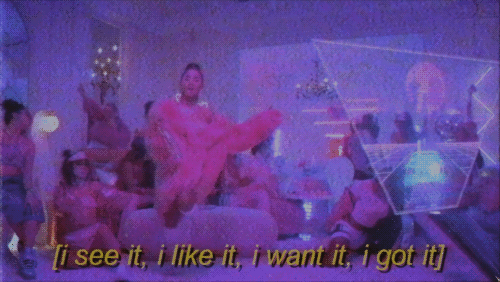
i am a new astrologer, so i will only be focusing on the big 6. i am still learning about houses and sextiles and all that, so i won't be including too much of it.
sun in ♋︎, 5 degrees + mercury in ♋︎
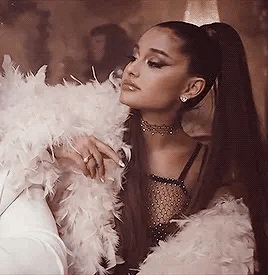
this makes ariana a first decan cancer: the most cancer of cancers. i like to say the sun sign is the sign of ego and how we view ourselves. ariana is someone who has a tough shell to crack, but once you're in her squad she will take care of you like a mother does her child. cancers are like crabs: sharp and pointy claws, but very nurturing and caring to her children. in this case, children = loved ones. cancers can exhibit mean girl energy in that way. they have a clique of close friends that they give everything to, but if they don't know u they can be quite cold/closed off. with this placement, ariana is emotionally in tune with those around her. she knows what you need if you're feeling down. sun in cancer people can also be quite moody, temperamental, sensitive, and romantic. like i said earlier, quite caring and loving. cancers are not as psychic as other water signs, but they are very compassionate and sensitive, and always want to give and help their loved ones (at least the developed cancers). cancers can also be quite vindictive, and they can have a bit of victim complex as well. think self pity parties. that is one of their shadow traits. they can wallow in their own victimhood and sadness every now and then. this can make them emotionally manipulative, moody, and hard to deal with on their off days.
moon in ♎︎, 6 degrees

this makes ariana a first decan lunar libra, again the most libra of libras. the moon indicates are inner-most self and our emotional regulations. with the moon being in libra, ariana is a social butterfly. she is very charming, fashionable, artistic, and cares a lot about aesthetics. she really values looking good and presentable. high social status and being well liked are also very important things to her. moon in libra folk are hopelessly romantic and really value romantic relationships (this explains her back-to-back relationships). this placement can easily make someone fear being alone. moon in libra folk are very diplomatic as well. they value justice and harmony, and will do what they must to sustain it (this can explain why ariana never publicly speaks about her scandals!!). she knows what to say and how to say it to make people adore her. effortlessly attractive and pleasant to be around.
venus in ♉︎

the venusian influence is strong here! with moon in libra and venus in taurus, ariana is very attractive and alluring to other people. venus in taurus folk are friendly, grounded, charming and they are they type who attract suitors instead of going and pursuing them. they are the ones who are pursued. ariana takes her time getting to know people. she is very friendly, charming, and grounding to her loved ones. venus in taurus people can be artistically inclined because venus is at home in taurus. it gives you a good eye for aesthetics and beauty. venus in taurus also has developed senses, so it can make you very good at cooking, singing, fashion, etc. arianas tastes are refined and lavish. she values luxury and the simple yet good things in life: think a nice steak (i know she's vegan) with some red wine and satin silk bed sheets. venus in taurus folk are thorough and slow moving at times. they value peace and comfort, as well as hard work, sensibility, and stability.
mars in ♍︎


this placement makes ariana a very detail oriented person. it can also mean that she is rather self-critical. someone with this placement may be very health conscious and body conscious. also with venus in taurus influence, they care a lot about their body looking good. she is meticulous and organized. once she decides she wants to do something, she will plan it out and do it thoroughly. once again, she values hard work and organization, similar to the venus in taurus influence. this placement can also make her a clean freak!! and a bit of a nagger too LOL
༶•┈┈୨♡୧┈┈•༶
ariana has been receiving hella backlash lately, but i am such a big arianator like i love that b*tch to death!! manifesting to meet her one day
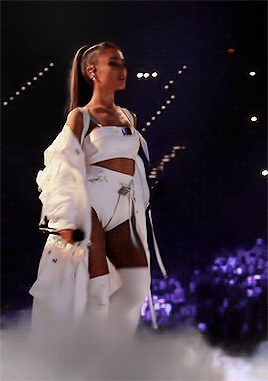

anyways, so that's it for this analysis. let me know your thoughts in the comments and which celeb you want me to do next <3
#astrology#astro notes#astrology community#astrology observations#birth chart#analysis#ariana#ariana grande#astroblr#astro observations#zodiac#zodiac signs#horoscopes#horoscope#cancer#libra#taurus#celebrity astrology#astro#astral#astrologist#astroloji#spirituality#loa#manifest#manifestation#tropical astrology
48 notes
·
View notes
Text


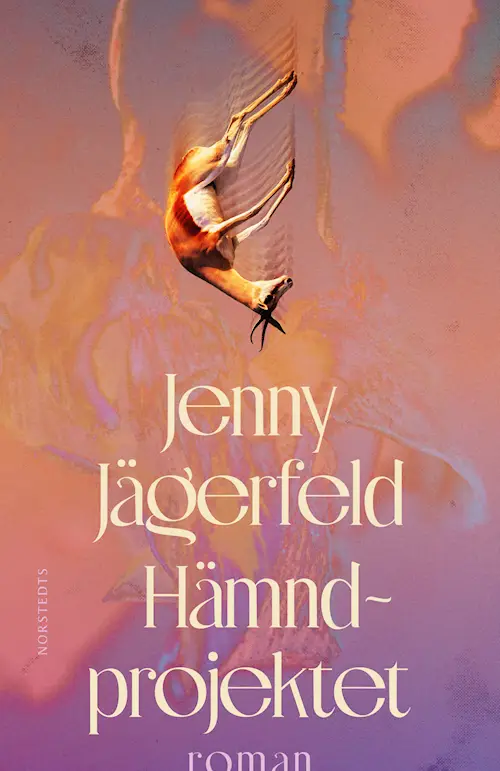

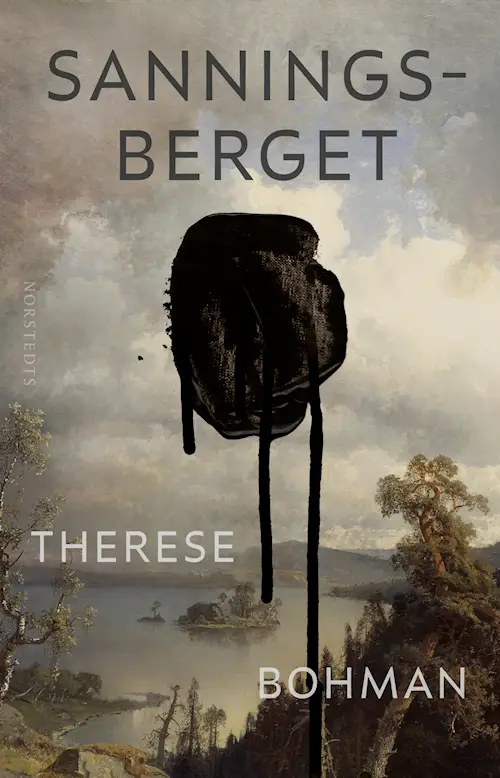
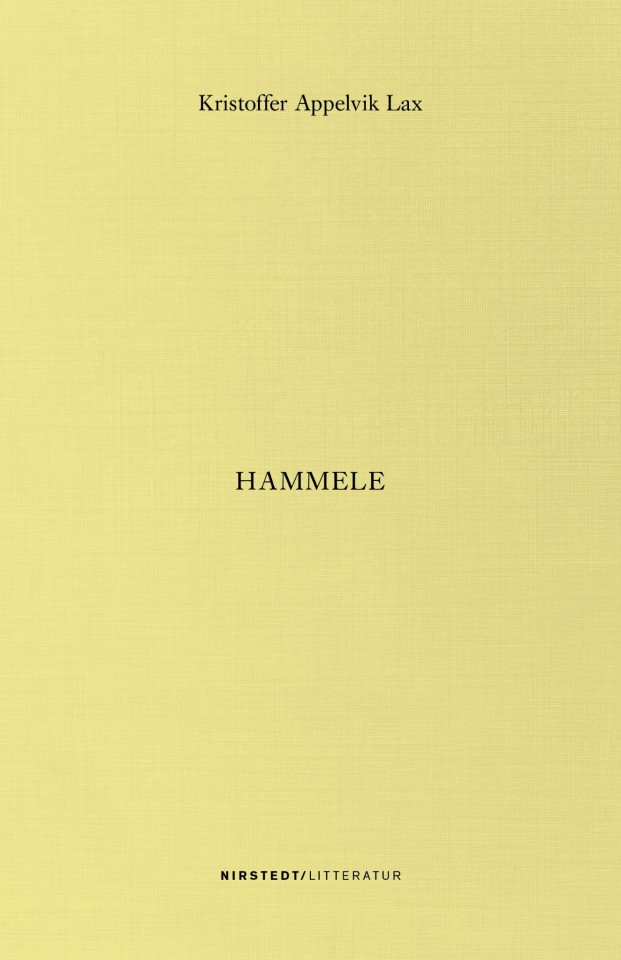
January 2025 reads let's gooooo
Heavenly Tyrant - Xiran Jay Zhao (2024): I have such mixed feelings on this. On one hand, I think the worldbuilding is compelling and I'm glad some of my fears from the first book (mainly the protagonist stagnating) did not come to pass! Yay!
But also there's still a tonal dissonance between the actual story and the YA-ness of it that's jarring to me. I don't care about any of these men nearly as much as Zetian does, and also the hatesex is just. Kinda cringe. To me personally.
I will still read the next book lol.
Pythian Pratar - Liv Strömquist (2024): A pretty thorough examination of the historical and cultural circumstances that have given rise to the self-help industrial complex (which it also thoroughly skewers) in comic format.
This wasn't a huuuge revelation to me, but I really appreciate how well the author connects seemingly separate topics and makes one coherent whole, while also adding a lot of historical/cultural tidbits and being actually entertaining.
Hämndprojektet - Jenny Jägerfeld (2024): After being subjected to a violent sexual assault, the protagonist becomes obsessed with revenge - as a concept, as a possibility, as well as a psychological and cultural phenomenon. What follows is a story about recovering from trauma interspersed with nonfiction expositions of vengeance as it appears in history, literature, etc.
I enjoyed this! I do think it overstayed its welcome, was sometimes a bit didactic in How Trauma Works, and relied a bit too much on recreational drugs to trigger character development. But I appreciated how it examines victimhood and found the nonfiction parts interesting and inspiring.
Blackouts - Justin Torres (2023): This was this month's pick for the queer book circle I go to and everyone there loved it. INCLUDING ME!!
It reads like poetry in the sense that you just kind of have to let the emotions and the prose move through you. This is suitable, I suppose, since a considerable part of the story centers around the erasure of the participants of a study about sex variants (read: LGBTQ+ people) in the 1940s, and the use of blackout poetry to restore some of their dignity.
But it's also more than that, and I do recommend checking it out, especially if you enjoy dreamy, cinematic prose. This was the literary equivalent of watching an arthouse movie.
Sanningsberget - Therese Bohman (2024): The protagonist's brother disappears in the woods without a trace when she's twelve. The rest of the novel is about what happens to her next.
This and Blackouts were my favourite reads this month, and it really comes down to execution in both cases. The prose in this was very evocative, and the author has an eye for details that make the setting feel real. The contrast between this everyday account of how one person's life is shaped by incomprehensible loss, and how this event gains an almost mythical dimension while lurking in the background, was really compelling to me.
Hammele - Kristoffer Appelvik Lax (2024): My first poetry collection of the year! A bit too abstract for my taste though. It did make me stop and re-read some passages just because I liked them, and sometimes I don't need more than that from poetry lol.
#the most shocking thing is how almost all of these were published last year?? i'm not usually so up to date lmao#books#personal#book review
3 notes
·
View notes
Note
Your 'stop blaming the victim' is referring to alicent and her children only or also rhaenyra?
I say it mostly referring to Alicent and her children, especially when it comes to the war, but there are instances in which Rhaenyra is a victim as well, and of course it still applies.
while I don't love Rhaenyra, I don't hate her either, and I can acknowledge that she is a complex character.
so while there are a lot of situations where she created the problem for herself, there are situations where she was victimized as well. She was Daemon and Viserys's victim.
Daemon groomed her, used her for his own gain, manipulated her, and abused her. she was a victim all of those times. I think Daemon doomed her in a lot of ways, and definitely set her on a path for failure after their marriage.
She was Viserys's victim cause he failed her as her father but also as her king and predecessor. he did not prepare her for the throne, didn't teach her how to be queen, didn't protect her as an heir. he let her do what she wanted, didn't teach her about the consequences of her actions nor how important it was to prioritize her image over her pleasure, etc. He doomed her as well.
so while I think Alicent and her kids where a lot more victimized, that doesn't erase the fact that Rhaenyra was a victim of her circumstances and the men in her life too.
what I do think is that people often forget and/or straight up ignore and mock Alicent and her kids being victims, and especially the fact they were victimized by Rhaenyra and Viserys. all the while, people hinge a lot of their arguments defending Rhaenyra on her victimhood, blowing certain moments out of the water, making up moments of victimhood, or ignoring that fact she has a long trail if victims behind her.
the fandom situation with these two when it comes to their victimhood is wildly different, which is why I tend to emphasize Alicent's more than I do Rhaenyra's.
#I feel like this is such a slippery slope *especially* with the shark like TB stans circling my at the moment#Rhaenyra is a victim#but she dug a lot if her own wholes AND victimized a lot of people around her#she can be both and still maintain her victimhood that can't ignored#pro alicent hightower#alicent hightower#rhaenyra targaryen#pro team green
28 notes
·
View notes
Note
[* 1x1 request intro ] hihi, i'm seeking 18+ writers only for a dark romance / possible dead dove. oc x oc pairing of the: daughter of rich man's mistress (f) x rich man's legitimate son (m). i'm practically gnawing at the bars of my cage because i crave this one specific dark romance plot so badly. please, come at me if you wanna give me tension, twistedness, and crossed lines... i need red flag actions and toxic emotions in spades for this one,, pls gang,, lets serve chaos and obliterate the thin line between love/hate with this rp 🙏
[ * the plot basis ] f oc is the daughter of m oc's father's mistress and her irrationally beautiful and irreverent existence makes the cruel and prodigial son feel sick with so many intense and unspeakable emotions. he wants revenge and to rule, while she wants to survive and escape. the ocs trauma and upbringing provokes them into a dark game full of revenge and twisted desires. after all, f's existence has cast a shadow on m's iron-fisted rule, so he needs to put her in her place for his family/revenge's sake. while m's cruelty has led the f into a victimhood that she never desired to have, with a resentment building as she fights against him... they'll finally settle their familial debt by using their minds and bodies as a makeshift canvas and scoreboard.
[* setting ] an old money and upper crust seting full of endless money, power-fuelled hierarchy, and cutthroat machinations. i can see dark academia themes and secret society's as a possiblity. modern-day royalty, corporate elite, or a political dynasty are all viable as the family's elite basis. need a very dark family history with a lot of family secrets and in-fighting. lets have fun with with possible worldbuilding and plotting, just as much as the romance.
[ * notes ] details pending on how the cat n mouse game / revenge seeking would pan out because i can go as dark or as light as my fellow writer desires. bad endings full of mindbreak/torture are a-okay with me, AND i'm also fine with a toxic codependant romance forming to soften the ocs into a happier-ending. could see lots of dead dove ⚰️🕊️ themes in the plot if the other writer is comfortable with it (mindgames, dubcon/noncon (?), power imbalance, incest/fauxcest (?), toxicity, darker kinks, possessiveness, psychological horror, god complexes, ownership/obsession, etc). ultimately, i need the m being completely obsessed with the f, and it culminating in him wanting to break her. while she will fight back as best as she can because she is her mothers daughter just as much as he is his fathers son. possible reverse harem / poly antics are fine with me if m's best friends want to get in on the action but not a necessity. maybe secret society and fucked up frat rituals are in play. possibly, an elite academy or university setting, or alternately, a set-up for a fucked up arranged marriage. i would love an exploration into both ocs very fucked-up mindsets. we can workshop things together. <3.
[ * housekeeping ]
i'm 21f+ writer, so looking for fellow 18+ writers only. (cismen dni, and under-18s dni.)
flexible literacy. para to multi-para or multi-message (literate-novella).
i want to write as the f in a mxf pairing for this idea, or mxfxm if desired. my oc idea is new but fairly developed.
fine with realistic fcs (actors or models) manwha/manga fcs or descriptive fcs. small note that my oc will likely be asian as the two character concepts that i'm currently dying to write are asian. also note, i'm fine with giving/taking fc suggestions if needed.
i ADORE headcanons, pinboards, plotting n rambling, side threads/text threads, and playlists. my beloved chatty and rambly writers– pls hmu because we are the same !! i love to yap about ocs and pairings way too much.
love, love, love darker themes, dead dove, smut etc, but i will also respect limits and expect the same in return. expanding on this point, limits and specific rp desires will be discussed in dms before moving to discord.
like/comment if interested.
.
#18+ rp#mindgames rp#dubcon rp#noncon rp#power imbalance rp#incest rp#toxicity rp#darker kinks rp#possessiveness rp#psychological horror rp#god complexes rp#obsession rp
2 notes
·
View notes
Note
[* 1x1 request intro ] hihi, i'm seeking 18+ writers only for a dark romance / possible dead dove. oc x oc pairing of the: daughter of rich man's mistress (f) x rich man's legitimate son (m). i'm practically gnawing at the bars of my cage because i crave this one specific dark romance plot so badly. please, come at me if you wanna give me tension, twistedness, and crossed lines... i need red flag actions and toxic emotions in spades for this one,, pls gang,, lets serve chaos and obliterate the thin line between love/hate with this rp 🙏
[ * the plot basis ] f oc is the daughter of m oc's father's mistress and her irrationally beautiful and irreverent existence makes the cruel and prodigial son feel sick with so many intense and unspeakable emotions. he wants revenge and to rule, while she wants to survive and escape. the ocs trauma and upbringing provokes them into a dark game full of revenge and twisted desires. after all, f's existence has cast a shadow on m's iron-fisted rule, so he needs to put her in her place for his family/revenge's sake. while m's cruelty has led the f into a victimhood that she never desired to have, with a resentment building as she fights against him... they'll finally settle their familial debt by using their minds and bodies as a makeshift canvas and scoreboard.
[* setting ] an old money and upper crust seting full of endless money, power-fuelled hierarchy, and cutthroat machinations. i can see dark academia themes and secret society's as a possiblity. modern-day royalty, corporate elite, or a political dynasty are all viable as the family's elite basis. need a very dark family history with a lot of family secrets and in-fighting. lets have fun with with possible worldbuilding and plotting, just as much as the romance.
[ * notes ] details pending on how the cat n mouse game / revenge seeking would pan out because i can go as dark or as light as my fellow writer desires. bad endings full of mindbreak/torture are a-okay with me, AND i'm also fine with a toxic codependant romance forming to soften the ocs into a happier-ending. could see lots of dead dove ⚰️🕊️ themes in the plot if the other writer is comfortable with it (mindgames, dubcon/noncon (?), power imbalance, incest/fauxcest (?), toxicity, darker kinks, possessiveness, psychological horror, god complexes, ownership/obsession, etc). ultimately, i need the m being completely obsessed with the f, and it culminating in him wanting to break her. while she will fight back as best as she can because she is her mothers daughter just as much as he is his fathers son. possible reverse harem / poly antics are fine with me if m's best friends want to get in on the action but not a necessity. maybe secret society and fucked up frat rituals are in play. possibly, an elite academy or university setting, or alternately, a set-up for a fucked up arranged marriage. i would love an exploration into both ocs very fucked-up mindsets. we can workshop things together. <3.
[ * housekeeping ]
i'm 21f+ writer, so looking for fellow 18+ writers only. (cismen dni, and under-18s dni.)
flexible literacy. para to multi-para or multi-message (literate-novella).
i want to write as the f in a mxf pairing for this idea, or mxfxm if desired. my oc idea is new but fairly developed.
fine with realistic fcs (actors or models) manwha/manga fcs or descriptive fcs. small note that my oc will likely be asian as the two character concepts that i'm currently dying to write are asian. also note, i'm fine with giving/taking fc suggestions if needed.
i ADORE headcanons, pinboards, plotting n rambling, side threads/text threads, and playlists. my beloved chatty and rambly writers– pls hmu because we are the same !! i love to yap about ocs and pairings way too much.
love, love, love darker themes, dead dove, smut etc, but i will also respect limits and expect the same in return. expanding on this point, limits and specific rp desires will be discussed in dms before moving to discord.
like/comment if interested.
-
4 notes
·
View notes
Note
So Rhaenyra’s downfall is gonna be some divine karma as she is gonna become a fanatical cult leader with a god complex that sacrifices the masses for a prophecy instead of having it be a tragedy caused by misogyny, they gonna make it seem like she brought her own end. Truly groundbreaking storytelling, thanks Ryan Condal.
If not exactly Dany S8 degree of "lost mind" cult leader "fanatical, it will be that she lost sight that Targs are not Gods and she "lost herself" bc she was desperate & had been deprived of the access to male graces her entire life. which is problematic not only bc bk!Rhaenyra seemed to feel little to no real jealousy or wish to do "masculine" stuff or to adopt a more "masculinized" identity, but bc it poses masculinity as both an inherent, immutable and prime desireable state of being rather than a thing that develops from socialization.
They seem to think that they are giving respect to Rhaenyra's end by not really thinking about women=victim and instead focusing more on how said woman "escapes" victimhood by doing what she can only ever do, and that is massive malicious takeover that she can no longer see as inherently evil. Somehow this is their "necessary" compromise with woman-eternal-victim with "feudalism is always bad and we shouldn't care about nuances of living in such a system": a woman fails bc she decided to the biggest-baddest thru weapons of mass destruction and manipulating 1000s to believe these creatures are gods to get where she has always been told she doesn't deserve.
Here's the thing. Cersei is a NLOG and did think that she needed to become a literal man or adopt ONLY masculinized phenomena (looks, behavior, practices, like sword fighting) in order to ever consider herself capable of being a creature of power. Of being an agent of change, influence, power, formidability, authority in her society/community/etc. Something that many people want or develop to want. And most women have ta one point felt this way whether it was a sustained (years long), "momentary", or something we still feel reflexively from time to time. Because we have been socialized that way. To think man = prime/only source of human power/"naturalness". It is inevitable that there will be Cerseis and such...but to make as if women are monolithically going to turn out to be Cersei is itself sexist to maintain that idea that maledom is a unquestionable "prize" or grace.
I see Cersei as both a tragic figure who portrays how fallible and futile it is to deny your own traits or eschew exploring what you are truly affined with at any given moment, or at least be flexible there in one's expression, be it gender or not. Bc Cersei is a figure of extreme repression to fit something she can never be bc it will always be denied to her on account of having a vagina and looking like an ideal of female beauty. It is why she is funny and tragic (to some, just hateful, or that and pitiful). But to make as if every single women MOST women will fall into this trap society makes is to make as if women are also pretty weak of mind, or whatever counts as "soul". Which again counts to reaffirm masculinity's superiority and women's place as needing the "protection" of men.
BK!Rhaenyra was an example of a woman who may not have been perfect but she never felt as if she had to deny who she was to prove her deserving or hide her traits to have access to such. She demanded and didn't give in enough when she was nonverbally and socially compelled to and was killed for it. HotD wants to stray from this to seemingly reaffirm all that I just described, even as its writers might not really understand the gravity of what they are doing.
Both are tragic figures. But they are not the same woman and their womanhoods' developments/how they created their womanhoods within the system give them their own separate flavors of tragedies that also go under the super-category of "women are damned" archetype in fiction. It is also bc these writers haven't really understood agency in gender relations.
Ryan Condal seems to dream of creating parables. He should stick to those. (these aren't "uncomplicated", either, btw, to write a good parable you need to have a good command or knowledge of some cultural ideals and be able to use them to make a very memorable image while conveying your point instantaneously...but Condal seems to favor the simplicity of a parable's one-shot allegory).
#benevolent sexism#asoiaf asks to me#hotd critical#hotd predictions#hotd comment#hotd writing#hotd s2 epi8#hotd leaks#hotd s2 epi7#hotd season 2#rhaenyra's characterization#cersei's characterization#agot characterization#hotd characterization#fire and blood characters#character comparison#cersei lannister#asoiaf#agot#hotd#fire and blood#westerosi women
17 notes
·
View notes